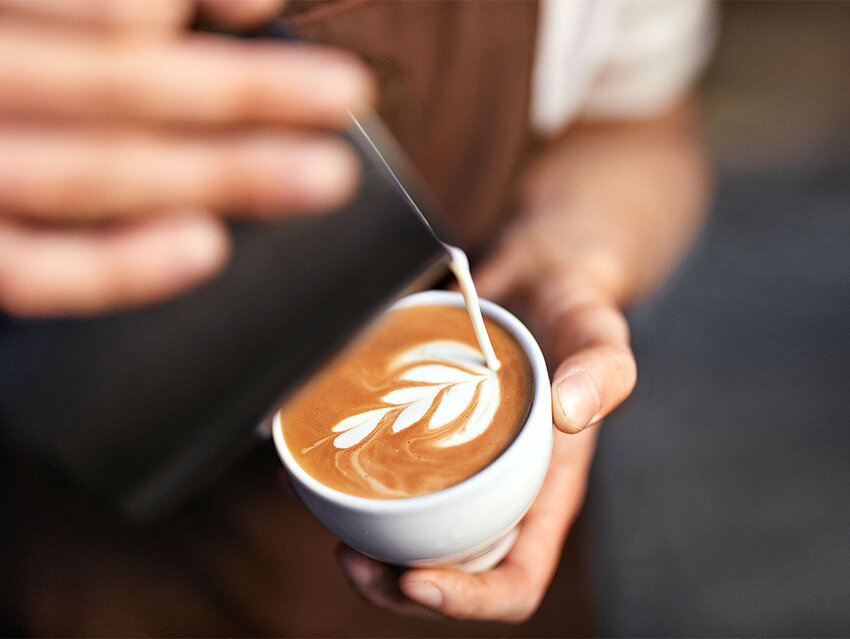Sponsored by Babbel
The English language is dynamic and ever evolving. Our everyday words often cross borders and cultures, coming with fascinating stories of their origins. Here, we explore the etymology of some common words and reveal connections to different languages and cultures.
English has borrowed and adopted loanwords from countless languages. In 10 minutes a day, you can learn to speak like a local anywhere you go as you explore language and culture with Babbel. Take advantage of Babbel's 60% off Spring sale.
Alcohol
The most common English association for "alcohol" is with intoxicating drinks, but its origin is in Arabic. The Arabic word al-kuhul originally described a fine metallic powder used to darken the eyelids (later known as “kohl”). In Arabic, kahala means “to stain, paint,” and al is “the.” By the 16th century, alcohol was in Medieval Latin, still referring to a powdered metallic substance. The term evolved to describe a volatile liquid, then any sublimated substance, then a pure spirit. By the mid-17th century, the word alcool made its way into French, and this is what turned into “alcohol” in English. From the medieval alchemical experiments, “alcohol” retains several variations of chemical definitions, but people probably most commonly think of alcohol as an intoxicating beverage.
Avatar
Originating from Sanskrit, an avatar is an embodiment or manifestation of a person or idea. In Hinduism, it refers to the descent of a Hindu deity to Earth in incarnate or tangible form. “Avatar” combines the Sanskrit ava ("off, down") and tarati ("crosses over"). The most modern usage of “avatar” is in video games and online forums — an avatar is the icon or figure a person uses to represent themself online.
Ballet
In English, ballet is an elegant dance form performed with specific graceful movements and steps. However, the origins of “ballet dancer” show the term is a bit redundant. The Latin word ballare means “to dance,” and while the dance form of ballet originated in France, the word came from the Italian balletto, a diminutive of ballo, which simply means “a dance.” The specific form of dance we call “ballet” got its start in 17th-century France, but at that time, it could have meant any kind of dance.
Broccoli
This healthy green vegetable gets its name from Italian, originating from broccolo, meaning "cabbage sprout." Many similar vegetables are in the Brassica oleracea family (cauliflower, kale, Brussels sprouts, kohlrabi), but broccoli is known as the Italica varietal of the family.
Chocolate
Most people love a sweet chocolate treat, but the word “chocolate” has had a complex journey. There are different legends about how Mesoamerican societies were given the cacao tree, but the words “chocolate” and “cacao” come from the Nahuatl language words xocoatl and cacahoatl, respectively. Xocoatl was a bitter and spicy drink mixture made from cacao beans. The Aztec, Olmec, and Maya civilizations are believed to have enjoyed this beverage long before Spaniards took it to Europe around 1520. Modern chocolate, tempered and sweetened with milk and sugar, is far from the original forms of xocoatl and cacahoatl, but the name preserves a tie to the Mesoamerican roots.
Coffee
It’s a beverage enjoyed globally, but "coffee" has roots in the Arabic qahwah, which Arab etymologists have linked to a word meaning "wine." Alternatively, it might be from the Kaffa region of Ethiopia, the home of the coffee plant. However, this would still come back to Arabic, as coffee in Kaffa is called būno, which was pulled into Arabic as the word bunn, meaning “raw coffee.”
Hamburger
Hamburgers are almost as American as apple pie, but the term "Hamburger" originally referred to a native of Hamburg, Germany. The food’s connection to the German city is uncertain, but it may be linked to Hamburg's role as a significant port for German immigrants to the United States.
Kindergarten
Widely used in the American education system for the introduction to school before first grade, "kindergarten" traces its roots to the German term Kinder-Garten, which means "children's garden." It was coined by German educator Friedrich Fröbel as a symbol of nurturing children's growth in the way a gardener might care for their beloved flowers.
Noodle
It was most likely borrowed from the German noun Nudel (meaning “noodle”), but some linguists believe it may be linked to the Latin minutulus, meaning "tiny" or "very small." Another theory suggests a connection to the German word Knödel, meaning "dumpling.”
Pajamas
In the 1800s, Muslims in India wore loose trousers tied at the waist, and Europeans adopted these pah jamahs for their sleepwear. The word likely comes from the Persian word paejamah, which translated literally as “leg clothing.” Europeans brought the style back to their continent and it spread across the world. Americans spell the word “pajamas,” but the British are more likely to spell it “pyjamas.”
Tornado
“Tornado,” which refers to a destructive force of nature in the form of a cyclone-shaped windstorm, comes from the Spanish word for “thunderstorm,” tronada. In the mid-16th century, a tornado was a thunderstorm, specifically a violent storm on the tropical Atlantic Ocean. English-speaking sailors likely created “tornado” from Spanish-speaking sailors referring to tronar, or “to thunder.”
Vanilla
The sweet taste that flavors baked goods and ice cream comes from vanilla pods, which are the fruit of a particular orchid plant. In Spanish, vainilla is “pod,” the diminutive of vaina, or “sheath.” Around the mid-17th century, when new, foreign spices and flavorings were being introduced to Europe from the Asian continent and the Americas, the word “vanilla” and the phrase “vanilla pod” (somewhat redundant considering the origin) was adopted into English from Spanish.
Curious about the crossovers between other languages? Unlock the door to new cultures and experiences with Babbel. Begin your language journey with one of the 14 languages you can learn with Babbel and save up to 60%.
Feature image credit: puhhha/ iStock

